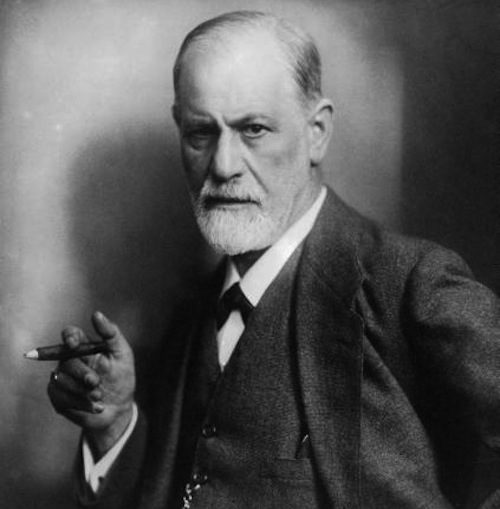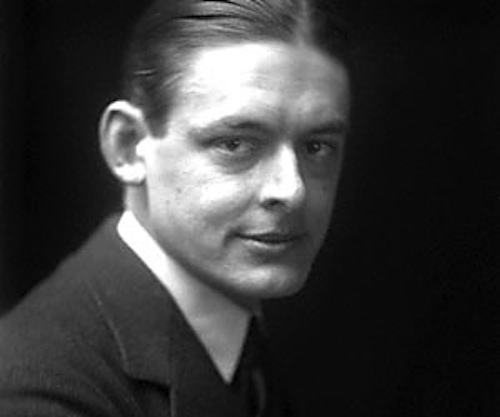Tetris Effect + Genetics: Why We Write
BY Mary Jo Bang
I sometimes tell my students that creative writing is egomaniacal because everyone has thoughts but only writers write them down. Not only do writers write their thoughts down, they work the rhetorical surface of what they've written as if they were spiders weaving fly entrapping webs. Poets sometimes add music and widen the margins when we write our thoughts, only to find that poetic sound patterning, broken lines and a low text-to-white-space ratio are the very things that put many people off from reading poetry. And yet, the first time I gave a free-verse poem I’d written to my mother, a non-poetry reader, she said, “I thought poems were supposed to rhyme.” The world wants it both ways; or better, not at all.
I recently gave a talk to college students and in the question period was asked why I write poetry. I conjured Freud, pushed several chairs together and reclined across them. Like a well-trained analysand, I first placed Freud’s chair so his back would be to me and we could both pretend the other was simply a mirror we were falling in love with.

This wasn’t the first time I’d been asked the question of why I write poems. Here’s part of my usual answer: I don’t think anyone can know why she or he writes. Any causal explanation a poet invents should be thought of as a poem itself: the record of a daydream that resembles playing solitaire with flash cards. This is to say that any cognitive or psychological lens used to examine the impulse to write is at best conjectural.
I then add that I’ve always been drawn to Eliot’s statement at the end of “Tradition and the Individual Talent”:
Poetry is not a turning loose of emotion, but an escape from emotion; it is not the expression of personality, but an escape from personality. But, of course, only those who have personality and emotions know what it means to want to escape from these things.

Poetry is an escape from one thing by substituting another thing, practiced by those who have something to escape. Reductive as a definition, yes, but at least it’s something. What I then said to the student was that I would prefer to answer the question, “Why do you read poetry?” I have answers to that question. And I gave them. More about that another time.
I recently became aware of a phenomenon called the Tetris Effect. Tetris is a video game. After playing the game, people frequently see the game-tiles as they fall asleep at night. Apparently, after playing the game for a time, some people even begin to perceive of the visual world as consisting of interlocking shapes. Writing poetry, it seems to me, has aspects of this acquired way of looking at the world. Poets begin to see potential poetic uses for everything they experience: overheard conversation, novels, poems by others, ad copy, traffic reports, dreams, recollections, idle thoughts. All experience, including interiority, becomes fodder for poem-making.
Not everyone experiences the Tetris Effect; after playing the game, only 60% of people will see the game tiles in the pre-sleep state. (“Replaying the Game: Hypnagogic Images in Normals and Amnesics,” Robert Stickgold, et al. Science 290, 350 (2000)). The same is true for poetry. Not everyone who writes a poem will begin to then organize all of his or her experience around the possibility of writing a poem. There may be some genetic basis that explains why some people do and others don’t. My biological father, who left home when I was four—and whom I only saw perhaps six times before his death in 2005—kept a daily journal for fifty years. I wasn’t aware of the journal until it came into my hands when he died. Here’s the entry for April 7, 1964, a Tuesday:
Home at 1:35 AM. To bed at 1:38 AM. Up at 10:50 AM. Read the paper. To Dorrs for coffee and donut. Went to Newberrys for a hot dog. Went to Lucky Market and shopped for groceries. Home. Read more of the paper. At 12:47 I took a nap. Up at 2:59 PM. Ate a lunch. Left for work at 3:50 PM. Very slow tonight.
All of the daily entries, fifty years of them, resemble this one. Each is distilled, fragmented, and based on repetition with revision. All of them seem to me to be evidence of an indefatigable urge to organize language around self-absorbed time-tracking and the detritus of encounters with the world—which is one way to conceptualize poetry.
Of course these journal entries aren’t poems. They make for mind-numbingly boring reading—although that can also be said of some poems—but genetics might be a necessary precondition which, when wedded to the provocation to write, allows writing to become a steady preoccupation and template for visualizing the world. Perhaps genetics is a switch that gets tripped by initial game playing, in this case reading or writing poems.
Here is the entry from April 8th.:
Home at 1:36 AM. Exercised. To bed at 1:57 AM. Up at 10:15 AM. Tried to exercise but was too sore. Read the paper. Went to a café and had coffee. Went over to see Norma and the baby. Went to Big Donut and had coffee and donuts. Got home at 1:00 PM. Went to the bank. Home again at 1:17 PM. Read awhile. Went to bed and had a short nap. Up at 2:45 PM. Ate a lunch and read more paper. Left for work at 3:55 PM. Fairly busy tonight, working in the machine shop.

Mary Jo Bang was born in Missouri and grew up in Cool Valley, outside of St. Louis. She originally studied...
Read Full Biography

